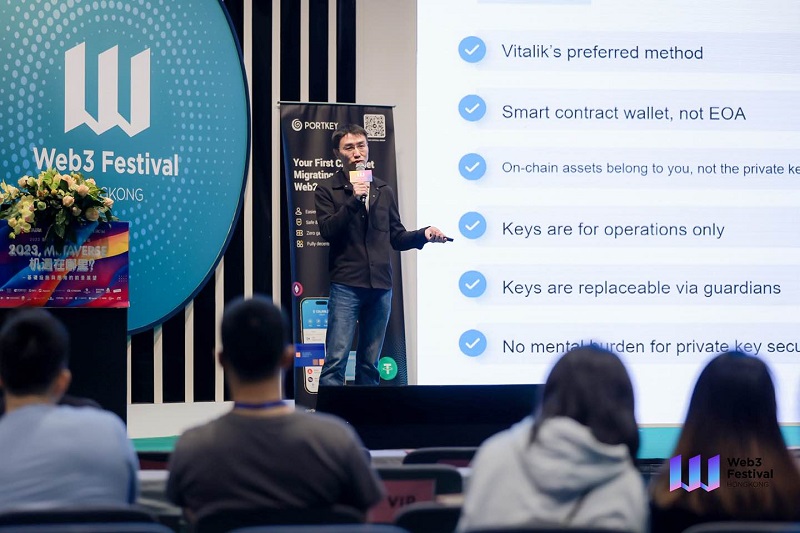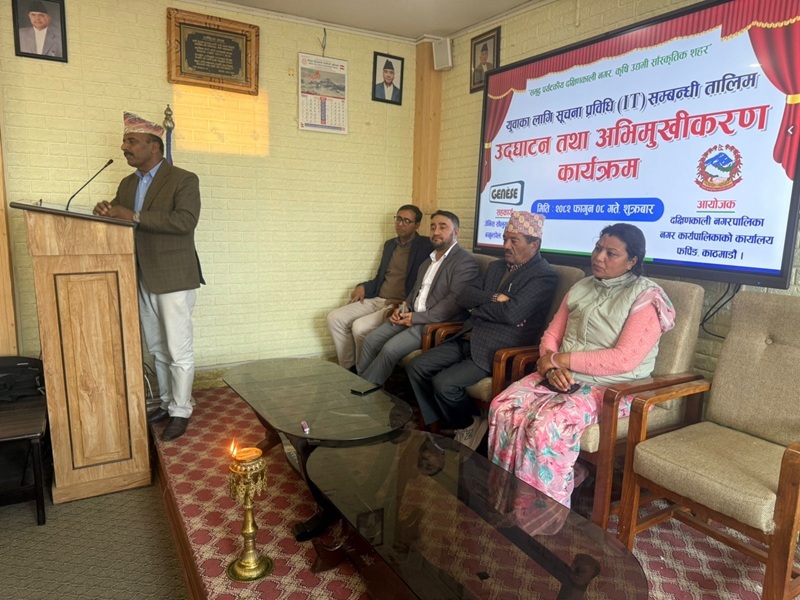CA Wallet Portkey Shows How Users Can Flock Into Web3 at Hong Kong Web3 Festival
17th April 2023, Kathmandu
The first Contract Account (CA) wallet from aelf’s ecosystem, delivered a keynote speech at a special session held by Microsoft at Hong Kong Web3 Festival and made a presentation at the “Demo Day” session on the same day.
The four-day Web3 Festival co-hosted by Wanxiang Blockchain Labs and HashKey Group has attracted over 10,000 participants and 300 distinguished industry speakers from countries across the globe.
At “Click Here“, the Microsoft special session which focuses on the entry point for enterprises to explore the value of Web3, Steven, CTO of Portkey, presented the topic “Building A Web3 Infrastructure with .NET – Paving the Way for Web3 Mass Adoption”. Portkey, as the only CA wallet project invited for demonstration, also participated in the Demo Day in the afternoon, showing Portkey’s potential in helping users enter Web3 in an easy, friendly, secure, and low-cost way.
Even though Web3 projects a fancy future, traditional wallets have hindered large-scale of Web2 users from entering Web3. Many are stopped at the first step: logging in. While Web2 applications usually allow users to create an account with e-mail, phone, or other social information effortlessly, the so far most-used Web3 wallets – non-custodial EOA wallets need users to have seed phrases and private keys which are hard to remember and easy to lose. Some rookie users will use an exchange wallet to access Web3, however, as the saying goes, “not your keys, not your coins”. Users don’t have control of their accounts and assets because the keys of their wallets are in hands of the exchanges.
“The primary mission of Portkey is to let users log into their Web3 wallets just as easily as how they log into Web2 applications, and at the same time, to guarantee that it is absolutely decentralized,” said Steven.
From 2019 to 2022, developers in the open-sourced aelf network have successfully realized one technical breakthrough: account abstraction, which is also a trendy technology in major blockchain ecosystems like Ethereum. With this technology, it becomes possible for a smart contract (CA) wallet to be built on aelf.
Given how CA wallet decouples user accounts and private keys, it allows users to finally log into their accounts in the Web2 way, exempting them from the burden of providing seed phrases and so forth. On top of this, Portkey also invented DID (decentralized identity) solution to enable social recovery and to make sure the wallet is fully decentralized and extra secure. In Portkey, to protect one’s account, the user can add guardians. When a user loses his or her account, guardians can help users restore their accounts.
One may wonder, such a wallet which seems to combine all the merits together must be really expensive. That’s not the case with Portkey. The wallet uses a unique delegation mechanism to allow users to create wallet accounts free of charge.
With the global crypto wallet market size estimated to reach US$48.27[1] billion by 2030, and the number of crypto wallet users to increase nearly 12 folds to 1 billion by 2031[2], Portkey is well positioned to capitalize on this enormous growth with its super user-friendly features.
Portkey users can not only enjoy its features but also its prosperity in the future. Portkey supports on/off-ramp functions for users to buy or sell crypto with fiat. It is also interoperable with multiple chains, making it possible to support projects from other networks. As a matter of fact, Portkey’s native chain aelf already allows the payment of gas fees in other non-native tokens. Users can be seamlessly connected to various DApps and assets via Portkey without any obstacles.
“The Web3 Festival Hong Kong was an important opportunity for Portkey to showcase our innovation and what we could bring to mass migration from Web2 to Web3,” said Steven, CTO of Portkey. “We believe with Portkey, we can really expect a large scale of growth of Web3 happening soon”







